Most young professionals realize early in their careers that, at some point, skill in generating business will be an important determinant of their success. However, many believe that, in the early stages of their career, they do not have much opportunity to develop these skills. This could not be further from the truth. True, few clients will trust someone still “wet behind the ears” with their business, but it is never too early (or, for that matter, too late) to begin the process of learning how to earn and deserve trust.
The way most clients choose among professionals is essentially identical to the way people choose their friends. At the point of selecting a professional to work with, clients go with providers who can (a) make them feel at ease; (b) make them feel comfortable sharing their fears and concerns; (c) can be trusted to look after them as well as their transaction and (d) are dependably on their side.
Creating these feelings in others begins with the correct attitudes (few people can make others think they care when they don’t) but also require the development of conversational and interpersonal skills, which only come with practice.
If you have an active social circle and people like being with you in your personal life, the odds are that you will have a significant advantage in learning the skills and habits of business development. If, on the other hand, you’re a social recluse personally, you will find it more difficult to get clients to see you as the trusted advisor they wish to work with.
Two key points must be stressed. First, none of this means that you can be anything less than excellent technically. The issue is not whether you are competent or trustworthy, but whether or not you are both.
Second, it is not necessary (or even always advisable) to actually make your clients your best friends. Friendship skills, while useful in both personal and professional life, can be put to different purposes. But first you have to develop them.
Making Friends
I had to learn these lessons the hard way. For years, I have worked for clients who have been gracious enough to invite me to dinner the evening before or after my work with them. They weren’t trying to get more work out of me; they just wanted to be sociable.
However, after a long day’s work, the prospect of still being “on duty” has not been attractive to me. It’s not that I don’t like my clients, but that I prefer to unwind by being alone. I’m not that sociable by nature. (I don’t drink, I don’t like sports. I like the Bee Gees. You get the idea.).
This is something I now regret. I have missed a lot of opportunities to form relationships with interesting people, and I know it would have helped me a lot professionally to make the gesture occasionally. I have tried to make up for it by being attentive and dedicated to my clients on the work issues during work hours, and to some extent that has been effective.
But I know I missed something important due to my social habits. At a minimum, I have undercapitalized on the many opportunities given to me to build profitable and fulfilling long-term client relationships.
A Talent For Friendship
There are people in this world who have a talent for friendship. My (late and very lamented) friend Roger Bennett, with whom I went to Harvard Business School, was so good at friendship that, in his 40s he was still in regular touch with people he went to school with at age 12, with people from all walks of life, tastes, social standing, income levels and preferences.
Roger could talk sports with some people, switch to an intellectual discussion of philosophy with others, share cooking tips with a third group. Lots of people considered Roger their best friend, and few people did not enjoy his company.
Yet he was never anything but himself. He was not a chameleon, acting differently just to blend in. He fit in everywhere because he was interested in a broad range of things.
The actress Angelina Jolie was interviewed on television and asked if she had to like the characters she was portraying in order to act them well. Her answer was brilliant. She said something like: “You can’t love everything about everyone. But there must be something there. The key is to find that one small slice of overlap between you and them, and focus intensely on that overlap, ignoring everything else.” I don’t know about acting, but that sounds like a perfect recipe for human relationships to me.
Someone can be your friend if you have anything in common. You don’t need a majority of things in common. There are none so lonely as those who dismiss others as “not my kind of person.” If someone else has to match you to be your kind of person, you will have few friends.
Notice, it’s not about pretending. It’s about actually working hard to find the area of mutual interest or common ground, whatever that might be. People can get very lazy at this, or unpracticed in doing it with politeness and sincerity.
For example, if I am in the wrong mood, I can find table talk at a dinner party to be an effort. I say to the person my left “And what are your hobbies?” Young Professionals: Cultivate the Habits of Friendship “Oh,” he or she might reply, “I love mountain climbing.” At this point I have to fight an overwhelming desire to turn immediately the person on my right side to save me from having to ask a follow up question with the first person. Mountain climbing! Ye gods, this is going to be a long night!
Other people can and do immediately think of three or four follow-up questions (“Where do you go? Do you climb alone? What got you started in this?”) and can keep posing additional questions all evening long.
By the end of dinner, their table companion, who has done nothing but talk about himself or herself the whole time has come to think of the questioner as an enjoyable person to be around. He or she will look forward to meeting again.
So it is with business development and client relations. The most trusted advisors in every profession are not those who have a ready answer for every client problem, but those who can, through questions and conversational style, put the other person at ease, make them want to tell you about themselves and engage in a dialogue.
And just as in personal life, it is done not by trying to be impressive, but by learning how to show a genuine interest in other people and keep them talking, not primarily doing the talking yourself. Can this habit be abused? Yes. Will it work if you are only faking it? No. Can you leave it out? No.
Surprisingly, it also turns out that you are also more likely to build a bond with someone by letting them help you than being too keen to try and help them. My wife, Kathy, is involved in a variety of handcraft groups. She reports that some of her most dedicated friendships began when she confessed her (relative) weaknesses and accepted help from others, whereas those she helped often resented (a little or a lot) having to seek out or accept her input.
Again, this matches client relationships and business development. You will accomplish more by saying to potential clients “I’m not sure I understand why you are doing things the way you do, could you explain it to me?” than you will by saying “If you’ll just shut up and listen, I’ll tell you the right answer to your problem.”
As professionals, we sometimes think that, to be impressive, we must demonstrate our competence by never revealing our weaknesses or areas of ignorance. This belief is incorrect. One of the ways you build friendships is to let people help you. Developing the selfcontrol to do it that way is a lifelong learning process!
Start As You Mean To Begin
When I was young I thought that the way you made friends was by turning yourself into an interesting person. Eventually, I learned the truth: You don’t make people want to spend time with you because they feel good about you. You do it by making them feel good about themselves when they are with you.
None of this means you need to make people feel good by engaging in false flattery, which is soon detected and rejected. It means that you learn to talk and act in ways that make people feel comfortable and safe around you. They feel that you are on their side. That you can disagree and have lively debates without taking things personally, because the friendship matters more than anything else.
It turns out to be the same in business development. The key to getting hired is not convincing the client things about you (“I’m terrific, trust me!”) but being convincing that you will look after them.
It’s also worth pointing out that, with people, you get points for trying. It’s like a romantic relationship. You don’t have to be perfect. Your partner just wants to see that you’re sincerely trying to do the right thing. Your motives are more important than your abilities.
Friendship Attitudes and Behaviors
Abilities, however, do count and that’s where getting started early matters. Suppose you wanted to be good at building romance, excelling at getting another person to work with you to build a mutually beneficial, mutually supportive relationship. What characteristics would make you good at this? Most of us have discovered that whether it be love, friendship or work, people respond best when they believe you are considerate, supportive, understanding and thoughtful.
These are easy words to say, but being viewed this way is not trivial. You actually have to earn the reward through your social habits. Many of us want to be considered as supportive, but that doesn’t mean we know what to do in order to be seen that way.
For example, to be seen as considerate you have to be able to remember to follow up with things that people told you about their lives last time you met, thus proving that you listened and paid attention. The classic example of this in business is to send along a newspaper clipping or article that you find that responds to something the other person made reference to.
To achieve the desired effect, this must not come across as, and must not be, a formulaic gesture. You don’t “cheapen the currency” by doing it all the time, and you must ensure that the clipping or article actually is useful so that you are not immediately seen to be making phony gestures.
It also helps to follow up with questions about what you were told last time you met, as long as you are skilled in phrasing your query (“How did it all work out with that guy you met?”) so that it comes across as concern and not as overly intrusive.
This is a delicate issue of language, which needs to be done differently with different people. They are not inherent talents, but habits of social intercourse. Habits that can only be developed with practice.
Social courtesy works in personal and business life. It is remarkably effective to remember to telephone your host or hostess the day or week after a party to say something like “I just wanted to say thank you for the party the other night. I had a great time. What time did you eventually get to bed after clearing up the mess we all made?”
Exactly how formally or informally this will be expressed is different in different parts of the world, and among different types of people, but the habit of expressing appreciation (and judging just how much is enough without being false) can – and must be – developed over a lifetime.
Similarly, it is remarkably powerful to call clients after a business meeting to say something like: “I just wanted to let you know how much I appreciate the opportunity to work with you. Thanks! See you next time, as planned.”
Done with a sensitivity to local culture and phraseology, such a call can go a long way to making the other person realize that you do not just see him or her as a “business contact,” but as a person with whom you want a friendly relationship. Not everyone will reciprocate, but the majority of people will.
If you do not develop the habit early in life, the act of making such a telephone call after a meeting could feel awkward and you will either leave it out or do it poorly, not quite creating the casual, comfortable “just a quick call between us friends” atmosphere that you wish to create.
For example, my old friend Roger was very good at working at staying in touch with everyone. He didn’t need an excuse to telephone. He would just pick up the phone to ask how everything was going. He did that to all his business clients as well as his friends. To him, there was no difference, and one context was no more difficult or embarrassing than the other. It was just the way he dealt with people.
To be viewed by other people as supportive also takes thought and careful attention to language. It is important to remember that friends don’t judge each other. They don’t evaluate. They don’t point out each others’ weaknesses. Even when asked directly (“Do I look fat in this?”), friends work hard to find the language that deflects criticism (“I like the other dress better.”)
Suppose that your friend has a child that is badly behaved. You don’t say “Your kid is a little horror!” nor “You’re raising that kid incorrectly”, even though both statements may be true. Instead, a friend might say something like “Have you ever thought about doing or saying ‘such-and-such’ to little Ashley?”
Having the ability to respond with the right phrase in real time takes practice, as do all social skills. Can you recall how difficult it was to find the right words and tone when you first wanted to signal to someone that you might be interested in a date? Can you imagine what it would be like if you still had to do it the same way today as you did that first time?
So it is with business development. If the first time you try to convince someone that you are interested in them and their business and want to help is when it is urgent for you to win business, you will be under too much pressure to learn it fast. Better to start practicing now, when there is less pressure for immediate results and more room to develop your own style, discovering what works for you.
Cheers! Skol! Salud!
In almost every society, ancient and modern, the cultural norm is to build friendships over food and drink. There is no more culturally accepted way to develop a friendship than to share a meal.
You want to be good at business development later in your career? Start inviting the people that you meet in the course of your work (whether they are powerful client executives, administrative assistants or anyone else) for coffee, lunch, a drink.
Ask them about their work lives and their personal lives. Do it as an exercise in developing your “curiosity muscles.”
Do it as an exercise in asking good follow up questions about what people tell you. Do it to develop your ability to understand other people who are not like you. Do it now.
If your reaction is that doing so will not pay off for you immediately and therefore is not worth doing now, then you are missing the whole point about human relationships and you are going to be very bad at getting people to entrust you with their business.
If you only do things when it pays off for you in the short term, your attitude will be readily transparent. People will see that you view them “instrumentally,” interested in them only to the extent that you can get what you want. And if they detect this in you, they will give you what you want less often.
The key to business development success is making people believe that you are truly interested in a two-way relationship, and that you are willing to earn and deserve your relationship. You must first make deposits in the “trusting relationship bank” if you wish to make withdrawals later.
You will actually need to be willing to get interested in people and initiate relationships, and that means being willing to ask someone out for a drink without being self conscious about it. And the only way to get to that stage is to have a history of doing it!
One of the most important habits of friendship is taking the initiative and doing the inviting, not just waiting to be invited. Do you remember that from adolescence? The way you get people to ask you out for a drink is to ask them out for a drink first. If it feels uncomfortable the first time, and an act of tremendous courage, well, it is.
We all need to get to the stage that we can talk to someone we’re interested in (a client or a romantic prospect) without being frozen into inaction by our hopes and fears. The guidelines are well known. Keep it casual, keep it small, take it a step at a time, but get out there and start meeting people.
Yes, we hated it when our parents told us to do that as children and it doesn’t make it any less terrifying today, but the habits are identical and you don’t get better at them by going to a training program.
More Friendship Habits
People good at friendship work hard at developing joint habits and routines, whether it’s as simple as discussing “last night’s game” or going to the same place each time for a cup of coffee. For my friend Roger and me, regular sessions of playing cribbage (the card game) became our way of cementing and celebrating our bond. I rarely played the game with anyone else.
Good friends go out of their way to celebrate each others’ small triumphs and make it their business to be there in times of need for their friends. They stay alert for any opportunity to help, in ways big or small, without keeping track of who has done how much for whom. That’s exactly what happens in effective business development.
Clearly, there is more to say about friendship skills, but my purpose here is not to report everything you have to learn. Goodness knows, I have only learned a little of what I should have. The key lesson is that it is learnable. You don’t have to be a natural to get better at this.
And, for goodness sake, start earlier than I did!
About the Author
David Maister is the author of Managing the Professional Service Firm (1993), True Professionalism (1997), The Trusted Advisor (2000) (co-author), Practice What You Preach (2001), and First Among Equals: How to Manage a Group of Professionals (2002) (coauthor.). Prior to launching his (solo but global) consulting practice in 1985, he served as a professor at the Harvard Business School.





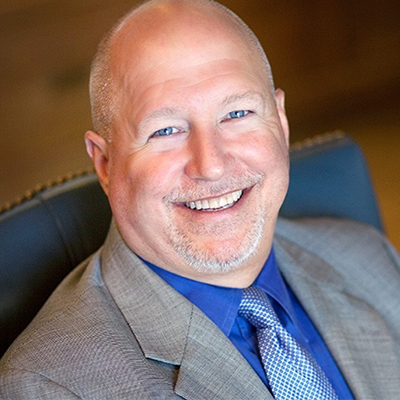
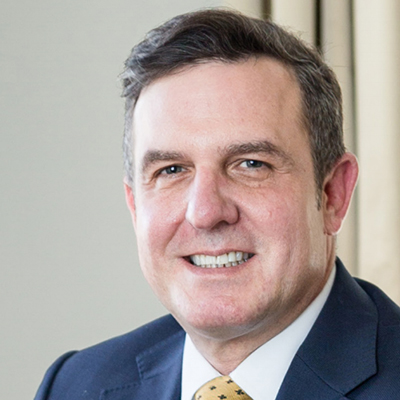


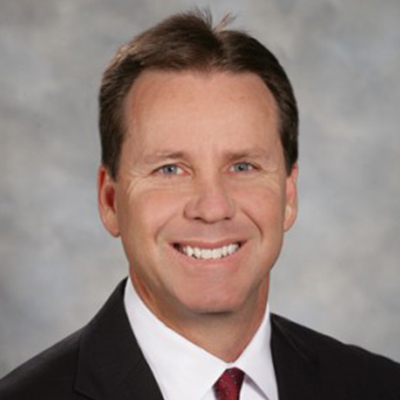
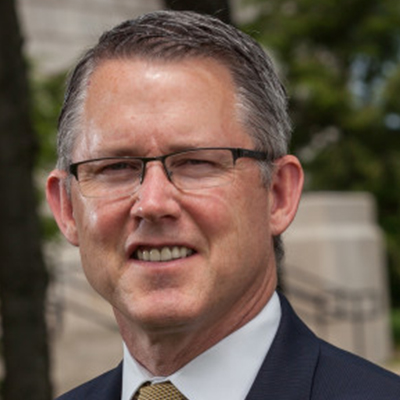

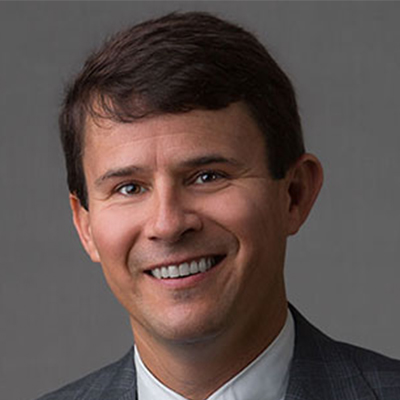

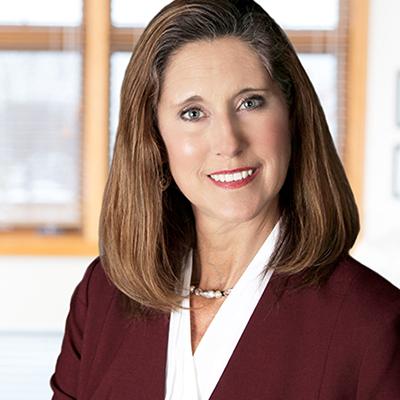
![Young Professionals:<br>Cultivate the Habits of Friendship [EDIT]](http://13.234.145.47/wp-content/uploads/2020/02/2-900x200.jpg)


